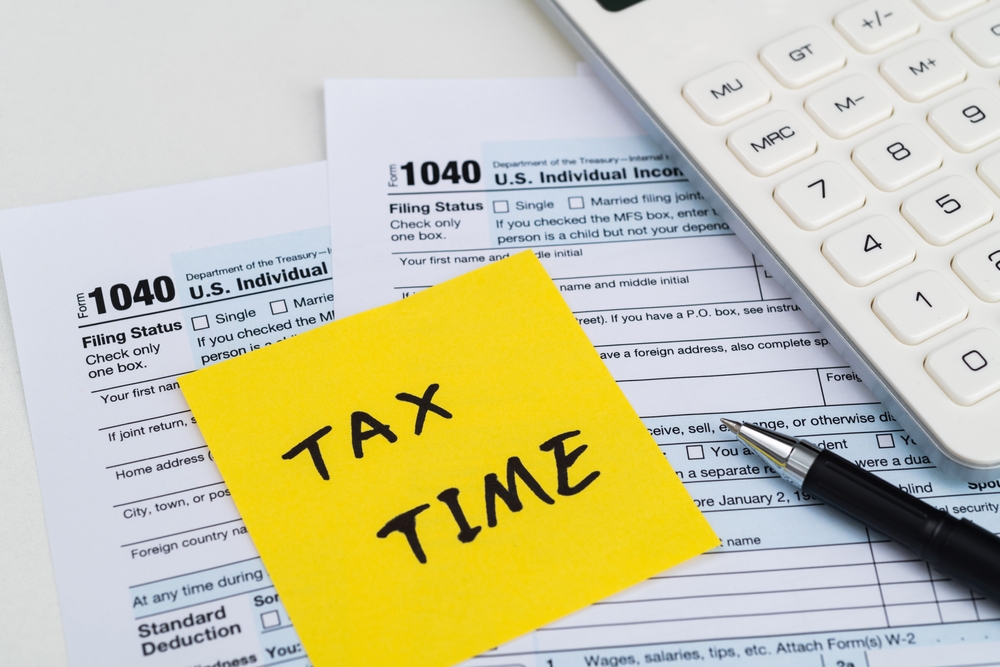Tax season can be one of the most stressful times of the year for many individuals. Whether you’re eagerly waiting for a tax refund or trying to figure out how to handle a tax bill, understanding what happens when your taxes are finalized is crucial. Once your taxes are completed, the final steps in the process determine what you owe, what you’re owed, and how to proceed. This blog will walk you through the critical aspects of what to expect when your taxes are finalized and offer insight into managing the outcomes, whether you’re receiving a refund or facing a balance due.
Tax Return Expectancy
When you file your tax return, one of the first things on your mind is likely whether you’re going to get a refund or owe money. The finalization of your taxes can determine how much you’ll receive or pay, but it’s important to understand the broader concept of tax return expectancy. This term refers to the general timeline and process of when you can expect to see your tax return issued or when you’ll have to make a payment if you’re responsible for a balance.
If you are expecting a refund, the IRS typically issues refunds within a few weeks after your tax return is processed. However, there are factors that can influence this timeline, such as the method of filing, the complexity of your return, and whether you choose direct deposit or a paper check. Tax return timeframes are generally faster when e-filing is involved, and refunds are sent more quickly when you provide direct deposit details. If you choose to file by mail, it may take longer for the IRS to process your return and issue your refund.
In cases where the IRS requires further documentation or verification, your tax return may be delayed. The IRS also occasionally performs additional reviews on returns with discrepancies or signs of potential fraud, which could prolong the waiting period. Understanding these nuances in tax return expectancy is essential for setting your expectations and knowing when you can expect to receive your refund or payment.
When You Owe Taxes: What To Do If You Owe
On the other side of the coin, many people may find themselves facing a situation where they owe taxes instead of receiving a refund. This can be unsettling, especially if the amount is higher than anticipated. So, what should you do if you owe taxes after your return is finalized? First and foremost, do not panic. The IRS offers several options for paying taxes owed, and the sooner you address the issue, the less stress you’ll experience in the long run.
The IRS allows you to pay your tax liability in full or to set up a payment plan. If you can pay the amount due immediately, it’s usually best to do so to avoid any additional penalties or interest that may accrue on your balance. The IRS offers multiple payment options, including electronic payments via their Direct Pay system, credit or debit card payments, or sending a check. Many individuals opt for the Direct Pay system, which is free and allows you to make payments directly from your checking or savings account.
If you’re unable to pay the full amount at once, you can request a payment plan. The IRS has two primary types of payment plans: short-term and long-term. A short-term payment plan gives you up to 120 days to pay your balance in full without accruing a monthly fee, though interest will still accumulate on the unpaid amount. Long-term payment plans, on the other hand, allow you to pay over a period of time but typically come with an additional setup fee and monthly installment payments.
Another option if you’re facing an overwhelming tax bill is to consider requesting an Offer in Compromise (OIC). This option allows taxpayers to settle their tax debts for less than the full amount owed, but it’s only available to those who meet specific eligibility criteria. If you think you may qualify for an OIC, it’s important to work with a tax professional to understand the application process and ensure that you’re putting together a strong case for your request.
Contacting the IRS: How to Handle Issues or Questions
Sometimes, once your taxes are finalized, you may have additional questions or run into complications. Whether you need clarification on your tax return or need to resolve a potential issue with your refund, contacting the IRS is an essential part of the post-tax season process. Knowing when and how to contact the IRS can help you avoid unnecessary delays and get the answers you need more efficiently.
One of the first steps in contacting the IRS is understanding when you should reach out. The IRS recommends waiting at least 21 days after filing your tax return before contacting them if you’re expecting a refund. This allows ample time for the processing of your return and the issuance of any potential refunds. However, if it’s been longer than 21 days, or if you are facing complications such as an incorrect refund amount or discrepancies in your filing, it’s time to reach out to the IRS for further assistance.
There are several ways to contact the IRS, including calling their main customer service line or using online resources such as the IRS website or the “Where’s My Refund?” tool. The IRS website provides an array of helpful tools that allow you to check the status of your refund, review your account balance, or inquire about tax-related matters. If you need to speak to an IRS representative, the main phone number for individual inquiries is 1-800-829-1040, but be prepared for potentially long wait times, especially during the busy tax season.
If you have a more complex issue, such as questions about deductions, penalties, or discrepancies in your return, you may need to contact a tax professional to help guide you through the process. Many tax professionals can also assist in contacting the IRS on your behalf, which can save you time and ensure that you’re handling the situation appropriately.
What to Do If Your Refund Is Delayed
In some cases, your refund may be delayed after your taxes are finalized. While most refunds are issued within a few weeks, delays can happen for various reasons, including errors on your return, incomplete documentation, or issues with direct deposit information. If your refund is delayed, the first step is to check the status using the IRS “Where’s My Refund?” tool, which can give you real-time updates on your refund status. You can also track your refund using your IRS account.
If the tool indicates that there’s an issue with your return, you may need to take further action. For example, if your return was flagged for errors, you may have to provide additional information to the IRS or resolve issues with missing documentation. It’s important to keep any correspondence from the IRS and respond promptly to any requests for additional information. The IRS will typically send a notice if there is a problem with your return or refund, so staying on top of mail and electronic notifications is crucial.
If the delay is due to factors such as incomplete or inaccurate tax information, it’s best to correct the issue as soon as possible to avoid further delays. Keep in mind that during peak times, such as the middle of tax season, delays can be more common. It’s essential to be patient and monitor your situation while keeping in mind that delays are often a temporary setback.
Stay Organized and Proactive
When your taxes are finalized, the journey isn’t over. Whether you’re awaiting a refund or preparing to pay taxes owed, the steps you take afterward are crucial in ensuring a smooth process. Understanding tax return expectancy, knowing what to do if you owe, and being prepared to contact the IRS if necessary can significantly ease the post-tax season burden.
For those who are owed a refund, the wait time can be shorter than expected, but patience is still required. If you’re facing a tax bill, knowing your payment options and having a plan in place will help alleviate financial stress. If delays or issues arise, staying organized and proactive by contacting the IRS and responding to any notices quickly is the best way to keep things moving smoothly.
By staying informed and prepared, you can navigate the complexities of tax season and come out of it with a clearer understanding of your financial situation.

